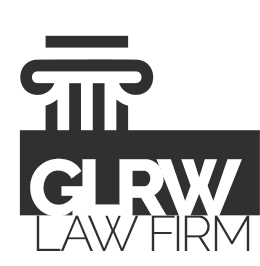New Jersey has well-defined judicial foreclosure procedures that apply to all commercial and private lenders and all residential, commercial, and industrial properties. A failure by either a lender or a property owner to adhere to those procedures will add unnecessary costs and delays to the foreclosure process and, for property owners, may result in a loss of the property at issue.
The real estate attorneys of New Jersey Eviction Law help lenders and property owners to navigate foreclosure proceedings. Whether you are a lender that needs to foreclose on a non-performing real estate loan or a property owner behind on your mortgage payments, our talented, multi-disciplinary team is prepared to meet the challenges of this complex area of New Jersey property law.
What is a foreclosure?
In New Jersey, a foreclosure is a judicial process under which a lender exercises a right to recover the property that a borrower has pledged as security for a loan that the borrower received to purchase the property. A foreclosure lawsuit is a complaint for breach of contract where the borrower is not performing a contractual obligation to make payments against a mortgage loan. Because real property is the security for the loan, the State has enacted enhanced procedures that must be followed before the property owner loses all control of the property. Both the borrower and the owner will benefit from the assistance of a foreclosure lawyer to understand and follow those procedures.
What is the New Jersey foreclosure procedure?
A lender can start a foreclosure procedure when the borrower is more than 120 days behind making mortgage payments. Before a lender files a New Jersey foreclosure complaint, it must send a written notice to the borrower by registered or certified mail of its intent to start a foreclosure lawsuit. The notice must include certain information about the foreclosure procedure and the borrower’s rights and must be sent at least 30 days before (up to 180) the foreclosure lawsuit is filed, during which time the defendant may seek to cure the default.
Other key aspects of NJ foreclosure law include:
- Provisions allowing a lender to get a deficiency judgment in the correct amount
- A borrower’s rights to redeem the foreclosure and recover the property, as well as any limitations on those rights
- An opportunity for the borrower to reinstate a mortgage loan that has gone into default before a court awards a final judgment of foreclosure
What defenses to foreclosure are available to the borrower?
During the mortgage foreclosure crisis that swept the country in 2008, some borrowers challenged foreclosures with technical defenses against some of the practices, such as “robo-signing”, a system that lenders had employed to expedite mortgage processing. Mortgage lenders have since revised their practices to preclude many of those defenses.
New Jersey mortgage borrowers can still use traditional foreclosure defenses. When faced with losing their property to a lender, borrowers have options that can save or at least, delay the foreclosure proceedings.
- A borrower can cure a default at any time before a court issues a final judgment on a mortgage loan by making all past-due payments plus any late fees
- Within a fixed number of days before the scheduled date of a judicial sale of the mortgaged property, a borrower can request a loan modification. For instance, where parties agree to capitalization of past-due payments and a revised or extended payment schedule.
- Borrowers can seek temporary forbearance of the foreclosure process under various State or Federal programs.
- A bankruptcy filing by the borrower will impose an automatic stay on foreclosure proceedings.
Borrowers that are faced with a pending foreclosure should seek guidance from an experienced foreclosure lawyer to determine the optimum foreclosure defense strategy that corresponds to their specific circumstances.
What issues might a borrower face after foreclosure?
An aggressive lender might seek recourse against a foreclosed borrower’s other assets to make up the difference between the balance of a mortgage loan and the sale price of a mortgaged property that is liquidated through judicial sale proceedings. Rather than facing the prospect of a deficiency judgment, a borrower that has resources can attempt to exercise redemption rights that are authorized under New Jersey State law to recover ownership and control of a foreclosed property.
Borrowers often wait too long before hiring a foreclosure attorney to assist them and assess their rights and options. Retaining an attorney as early as is possible in the foreclosure proceedings will improve the borrower’s position to resolve the matter with the fewest delays or complications.
Foreclosure Requirements for Mortgage Lending Attorneys
Attorneys who file a mortgage lending lawsuit on behalf of the lender, must comply with strict statutory rules in the handling of the case. In addition to the foreclosure complaint, they must also include copies of all the relevant loan documents, including:
- the mortgage or deed of trust,
- promissory note,
- the notice of an intent to foreclose, and
- an accounting of all payments made and missed that justify the foreclosure proceeding.
If the complaint has any gaps, errors, or inconsistencies, a New Jersey court might dismiss the case and force the lawyers to re-start the process. However, a lender who retains an experienced mortgage lending attorney will save significant time and resources. Greenblatt, Lieberman, Richards & Weishoff, LLC will see to every detail, comply with all procedural rules, give you candid advice, and get your Order in front of the judge.
Trust Your Foreclosure Matter to the Real Estate Attorneys of Greenblatt, Lieberman, Richards & Weishoff, LLC
For more than 50 years, New Jersey property owners and mortgage lenders have trusted our talented team of attorneys and legal support staff with their most complicated foreclosure matters. We’d be honored to help you with yours.


